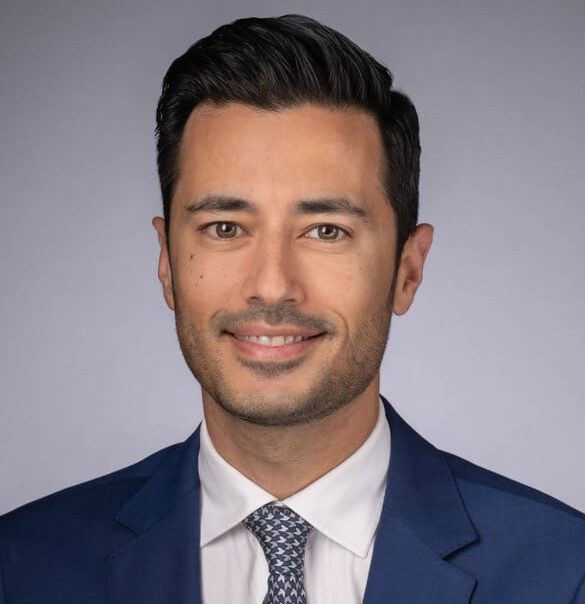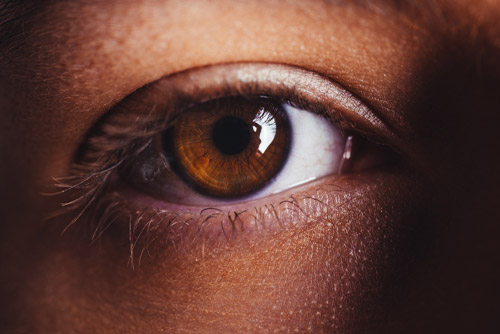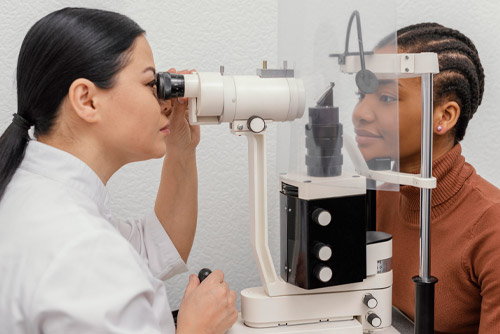
Dr. Hady Saheb
McGill University Health Centre, Montreal, QC
Dr. Hady Saheb is a glaucoma surgeon whose ophthalmology practice is focused on medical and surgical glaucoma care, as well as cataract and complex anterior segment surgery. He’s the President of the Canadian Glaucoma Society and the Director of the Glaucoma Fellowship at McGill University. For Dr. Saheb, the most rewarding part about treating glaucoma is helping patients understand their disease and engaging them in their treatment to help preserve their vision.
What exactly is glaucoma?
Glaucoma refers to a group of eye diseases that affect the optic nerve, which connects your eye to your brain. Glaucoma is often related to the pressure inside the eye, known as intraocular pressure. When the eye fluid doesn’t drain properly, pressure builds up in the eye. This increased pressure can damage the optic nerve fibers, leading to a loss of peripheral vision and sometimes even complete vision loss.
I’m in my 40s and have never really given glaucoma much thought. What should I know?
I think it’s really important for everyone to know that glaucoma can lead to blindness if not treated early. In fact, it’s one of the most common causes of blindness both in Canada and worldwide. It’s equally important to remember that vision loss from glaucoma is preventable with early diagnosis and treatment. The best thing that you can do to protect yourself from glaucoma-related vision loss is to be screened regularly for glaucoma. Every adult should have a comprehensive eye exam with an eyecare provider every 1-2 years.
I’d urge Canadians to be aware of the risk factors for developing glaucoma. People over 50 years of age, who have a family history of glaucoma, or from certain ethnic groups (e.g., those of African descent) are at higher risk of developing glaucoma. Those individuals should be screened earlier and more often, at a minimum of once a year.

I’ve just been diagnosed with glaucoma. Does that mean I’m going to go blind?
Recognizing how highly most people value their sense of sight, the thought of going blind is scary, so your question is common and an important one to ask. Glaucoma is a serious eye disease and remains one of the most common causes of blindness. What’s helpful to keep in mind is that in looking at studies of glaucoma around the world, most patients who go blind either started treatment when their glaucoma was already at a severe stage, or they struggle with adhering to treatment and follow-up. In many cases, if patients are engaged in their treatment and follow-up, the chances are very good that we’ll be able to maintain their vision throughout their lifetime.
I have glaucoma but I’ve never seen an ophthalmologist. What role does an ophthalmologist play and when should I be referred to one?

Glaucoma care is complex and may involve an optometrist, ophthalmologist, or sometimes both working together. As medical doctors with extensive training, ophthalmologists have a unique and specialized expertise in managing patients with glaucoma. We also have the training required to perform laser and surgical procedures as well as manage any potential complications safely and quickly. In general, if they are not already seeing an ophthalmologist, patients with glaucoma should be referred for evaluation or treatment in the following cases:
- Worsening glaucoma despite treatment
- Difficulty lowering eye pressure despite treatment
- Difficulty tolerating current treatment
- High risk for glaucoma deterioration (e.g., younger age, strong family history of glaucoma-related vision loss, other eye conditions, etc.)
I’ve been on prescription eye drops for glaucoma for over a year. I know I need to use them regularly, but I really don’t like them. Is there anything else that can be done?
The short answer is yes – something else can almost always be done so it’s really important to share this feedback with your eye care provider. Prescription drops can be extremely effective for managing glaucoma, but some have side effects, such as increased dryness or irritation of the eyes. We know that patients who are bothered by their drops are less likely to take them regularly, so we want to work with you to help you find a treatment option you’re comfortable with. That could mean switching to a different kind of eye drop or considering other treatment options like laser or surgery. The key is to keep those lines of communication open with your eye care provider so they can find an option you’re likely to stick with.
Looking ahead to the next 5-10 years, what new advancements are on the horizon that will improve glaucoma care in Canada?
Ophthalmology is a medical discipline that’s constantly evolving and within glaucoma care specifically, there is a lot to look forward to in the next few years. The surgical space in glaucoma is continuing to evolve and there are new procedures expected to become available to patients that will improve surgical outcomes and safety. We’re also seeing laser treatment playing an increasing role as patients are looking for alternatives to eye drops to lower eye pressure. There’s also some exciting innovation still in the research phase looking at reversing glaucoma, rather than the current approach of preventing or stabilizing damage from the disease. Lastly, the COVID-19 pandemic has really accelerated the uptake of virtual glaucoma care and moving forward we’re likely to see more telehealth options available to make glaucoma care more accessible and convenient to patients.
